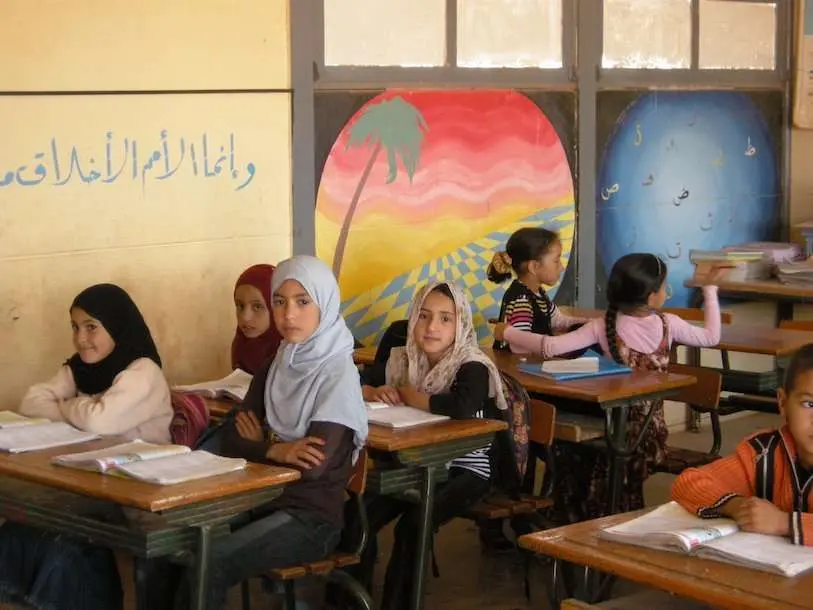La educación: el sector clave para el crecimiento económico de Marruecos

Over the past decade, Morocco has endeavoured to strengthen and diversify its economic foundations, introducing a variety of strategic initiatives such as the Green Morocco Plan and the Industrial Acceleration Plan, and working to improve its business climate.
The country ranked 53rd out of 190 countries in the World Bank’s “Doing Business 2020” report, up from 128th in 2010. The bank’s most recent report highlighted the online processing of construction permits, greater access to electricity and the introduction of e-payment for port fees as some of the main reforms that helped improve the country’s position.
On the macroeconomic side, recent years have seen the budget deficit and inflation brought under control, with the target to maintain them at 3.5% and 2% of GDP, respectively, in 2020. However, annual GDP growth has not performed as well. After registering an average expansion of 4.4% between 2000 and 2017, GDP growth slowed to 3% in 2018 and an estimated 2.6% in 2019, according to Bank Al Maghrib. The 2019 figure was weighed down by a 4% drop in the value added generated by the agriculture sector.
To that end, a new body known as the Special Commission for Economic Development (Commission Spéciale sur le Modèle de Développement, CSMD) was formed by King Mohammed VI in the summer of 2019 to identify bottlenecks to growth, and devise plans to promote the generation and distribution of wealth. While Morocco has made undeniable and significant headway in sectors like infrastructure, renewable energy, manufacturing and financial services, “the effects of progress and achievements made have not, unfortunately, been felt by all segments of Moroccan society”, as stated by the King in his Throne Day speech in July 2019. Therefore, the suggestions to be made by the 35-member commission and compiled in a report by mid-2020 will be designed to benefit broader swathes of the population.
While it is clear that Morocco still has some way to go in reaching its goals, local business sentiment remains robust, with 78% of respondents to OBG’s fourth Morocco CEO Survey saying they have positive or very positive expectations of business conditions in the coming 12 months, and 76% saying their companies were likely or very likely to make a significant capital investment over the period. This goes to show that, despite the headwinds, the business community remains confident in the short- to medium-term economic outlook.

Business leaders were also upbeat about the prospects of the Africa Continental Free Trade Area (AfCFTA) agreement, with 74% saying they have positive or very positive expectations of the deal’s outcome on intra-regional trade levels. At the turn of the century, Morocco placed a special emphasis on developing South-South relations, and local businesses have since expanded into a variety of sectors ranging from financial services and telecommunications, to construction and manufacturing.
While the country has succeeded in enlarging its regional footprint, exports to the continent have fallen short of expectations, accounting for just 7.8% of the total in 2018. This compares to the 70% of exports directed to Europe that year. The implementation of the AfCFTA is therefore expected to bring Morocco further opportunities to strengthen its ties with southern neighbours.

At the same time, Morocco saw its imports from the continent rise by 24.7% in 2018, driven primarily by higher imports of oil and gas. Indeed, 90% of Morocco’s energy needs are met through imports, which helps explain why the largest share of survey respondents (47%) view volatility in commodity prices as the top external event that could impact the economy in the short to medium term. Other external threats identified by business leaders include instability in neighbouring countries (30%) and increased trade protectionism (15%).
Another challenge Morocco will need to navigate is its tax environment, which 68% of survey respondents deem uncompetitive or very uncompetitive. This figure is up from 55% in 2018 and 57% in 2017. In May 2019 the country held the third National Tax Conference with a view to improving its tax framework through enhanced competition, efficiency and transparency. The proposed measures are expected to be integrated into future budget laws starting in 2020.

Despite challenges and the work that remains to be done for more segments of the population to reap the benefits of recent economic gains, Morocco has made considerable strides in diversifying and strengthening its economy. Today, the country boasts one of the continent’s most dynamic manufacturing centres, with the aeronautics and automotive industries taking centre stage. Moreover, the launch of Tanger-Med 2 port is a major development that brings with it the promise to expand Morocco’s export potential. Inaugurated in June 2018, the $1.3bn extension forms part of the larger Tanger-Med port complex, which is connected to 186 ports in 77 countries.
With more developments under way in the financial services, telecommunications and IT sectors, the country’s future economic gains will also highly depend on the availability of skilled labour in these areas. Illustrating this understanding, nearly 75% of OBG survey respondents selected education as the sector that will enable Morocco to unlock its economic potential. In terms of the skills in greatest need, 36% identify leadership, 16% engineering, and 15% research and development, highlighting where the education system should focus its efforts.

In collaboration with IDEO E-learning Experts










